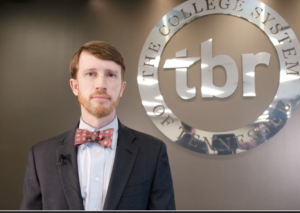By Caleb Baldwin
On Thursday February 20th Melanie Cochran, a history professor at Volunteer State Community College, gave a lecture in honor of Black History Month about the Civil Rights Movement. The lecture was held at Vol State’s Gallatin campus, in the Rochelle Center of the Thigpen Library.
About 60 people, faculty and students included, attended the lecture. Cochran’s lecture examined how the 1950s set the stage for the success of the Civil Rights Movement.
Cochran began the lecture by explaining the state of the U.S. between the end of the Civil War and the start of the Civil Rights Movement. Segregation was made legal in 1896, and while it declared races were ”separate but equal,” they were anything but. Cochran stated that between 1890 and 1950, over 4,000 lynchings occurred, proving that the vast majority of America did not see African Americans as equals. Cochran explained how WWII was a catalyst for anti-racism as Americans saw that if they were fighting racism abroad, they should also be fighting it in their home country. This then began an early Human Rights Movement as Americans saw how mistreated people were under Hitler’s regime.
Cochran then went on to include more historical milestones including President Truman’s endorsement of a Civil Rights Agenda and how the Korean War was the first in which black and white soldiers fought alongside a common enemy, starting the desegregation of the armed forces. Cochran also discussed the importance of Jackie Robinson joining the Brooklyn Dodgers, becoming the first African American to join a major sports league. Cochran discussed how much of the success of the Civil Rights Movement in the 50s was due to the introduction of the television. This allowed for news to be broadcast faster and wider than through a newspaper and became yet another reason for the U.S. to clean up its act.
In an interview with Cochran, she explained the relevance of the Civil Rights Movement to today’s culture. “I think its hugely relevant, we still have discrimination, and I think it’s important for people to understand why our society is the way it is now,” Cochran stated. She explained that it’s important to understand our history so that we can understand who we are now and why.
“I think it’s important to know just how long ago it wasn’t, it seems like a while ago, but in the context of American history it really wasn’t that long ago that these laws changed,” noted Cochran. “I think clearly there’s been significant progress, but there’s still a way to go and it’s not necessarily things that laws will change, it’s more cultural I think,” Cochran stated.
She said that while we have come far from where we were, there is still a lot that could change in our culture and society. “I do think we have progressed, especially thinking about a lot of highly publicized events from the past few years where a lot of white power groups have had kind of a platform.” Cochran said that many semi recent events publicized by the news can show us as a society that although we may have come far from the 50s, we still have a lot of work to do for Civil Rights.




Comments are closed.